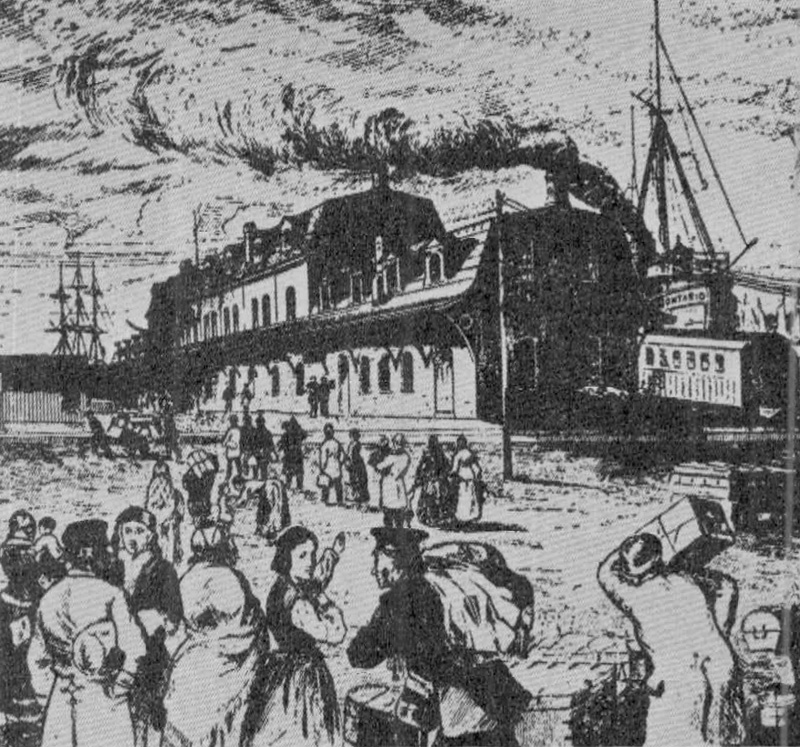
HISTORICAL EVENTS THAT TOOK PLACE ON THIS DAY IN CANADA
29 July

Icelanders Arriving at Point Edward, Ont., 1875
Icelanders Arrive
When Manitoba became Canada's fifth province in 1870, it had a population of about 12,000. Of these, approximately 1,500 were English-speaking. The re main der spoke French (the language of the Métis), or Indian. The situation changed greatly within six years through an influx of settlers. Basically, Manitoba had been bilingual (English and French) in 1870. In 1876 it was multilingual, as it is today.
The most important language additions in the six years were German and Icelandic:. The German was due to Mennonite settlers, who, although they came from Russia, spoke Low German. They were given land, religious freedom and exemption from military service, all of which they had lacked in their own homeland. More than 6,000 Mennonites had arrived in Manitoba by 1879.
Among the most remarkable settlers were the Icelanders. Their homes had been destroyed by a volcanic eruption in 1873 and they came to Canada at the suggestion of Governor-General Lord Dufferin. The first party arrived at Quebec on July 29, 1873, and went to the attractive Muskoka area of Ontario. They found it difficult to settle there, however, and after exploring various possibilities, chose a more suitable location at Willow Point on Lake Winnipeg. They liked it so well that they called it Gimli which, in Icelandic, means "Paradise."
The first party numbered only 285, and traveled in flat-bottomed boats down the Red River and across Upper Lake Winnipeg to the bay of white sand beaches, where fish were plentiful, and trees provided lumber for building. They had few possessions apart from tools and books. As they had a great love of literature and language, they learned to speak English more quickly than any other race, many of them being fluent in six months, without a trace of an accent!
During one period, more than 2,000 Icelanders arrived in the area. They might have felt that they deserved a place in Canada. It is generally believed that the Norsemen were the first Europeans to land in North America. Others claim that the Irish were first. It is possible that neither theory is correct and that the honour should go to the ancestors of these Icelandic immigrants.
OTHER NOTABLE EVENTS ON THIS DAY IN CANADIAN HISTORY
29 July
-1704 A New England force under Benjamin Church attacked Beaubassin and Grand Pré in Acadia.
-1848 The last plank was laid on the Niagara Suspension Bridge.
-1895 The Territorial Exhibition opened in Regina.
-1911 The Canadian Northern Railway was completed between Montreal and Port Arthur, Ontario.
-1912 The Imperial Privy Council upheld authority to make marriage laws.
The Roman Catholic Church had declared marriage laws invalid in 1907.
-1965 A seven day postal strike ended in most cities.